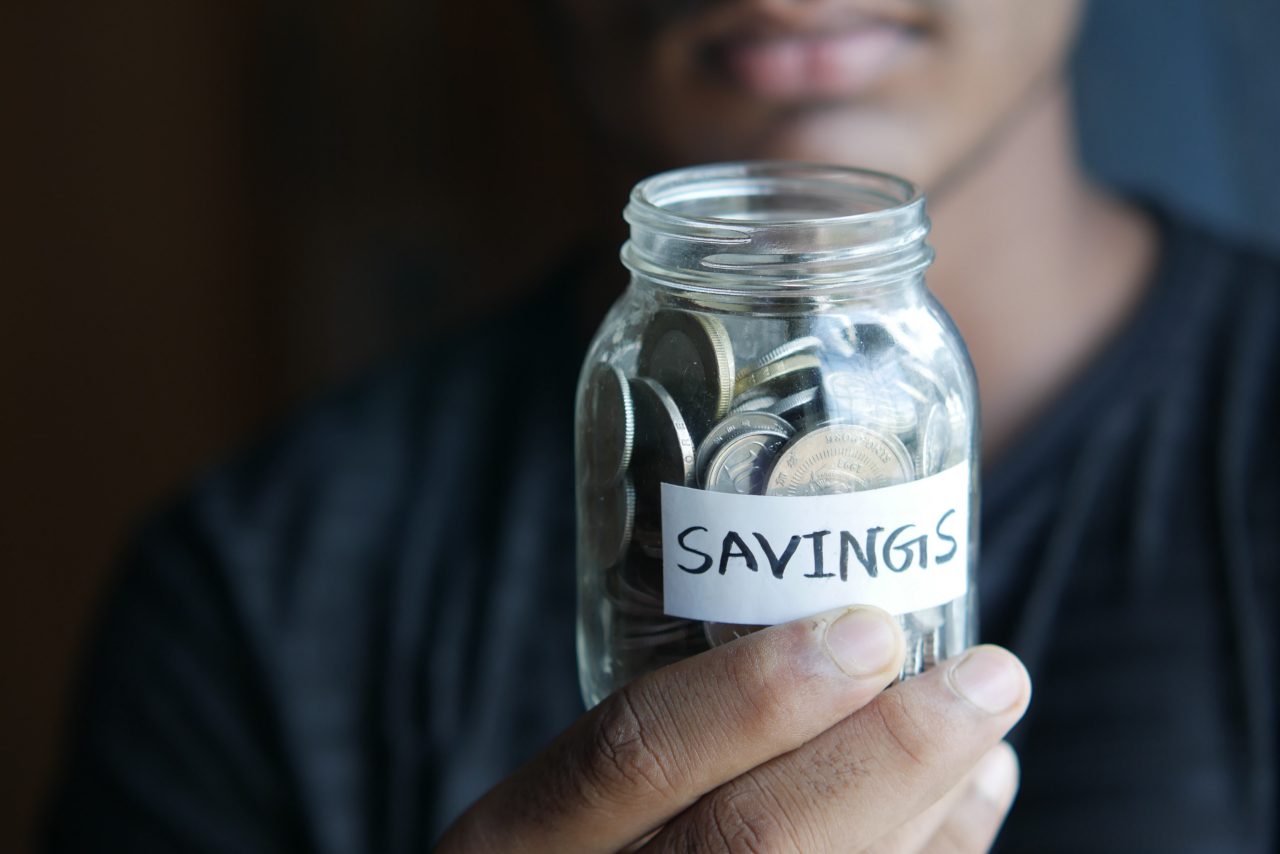Money Matters
Big budgeting bonanza
By Tammy Sofranic

Your 20s can be full of firsts. Living out of home handling your finances dealing with the share-house bathroom failing at fitted sheets surviving on a massive noodle stash encountering the wonders of a 9 to 5 job for the first time...
But your 20s are also a super important time to set yourself up financially for the years to come. How do you even invest in your 20s? How much savings should you have by age 25? Should you start saving for retirement in your 20s?
Experts advise that putting away about 25% of your total income per month will give you a great start at saving a decent amount in your 20s. The 25% rule states that you shouldn’t be spending more than 75% in total on necessities (your phone bill rent utilities travel and dining out) and nice-to-haves (flashy clothes new kicks that new guitar you really want but don’t need) combined.
If you need a more streamlined approach you could try the famous Barefoot Investor’s “Bucket” strategy:
- Spend only about 60% of your total income on daily expenses
- Save 10% in a “Splurge” account (for random unnecessary “reward me” spending)
- Leave 10% in a “Smile” account (for longer-term treats like a holiday or new car)
- Leave 20% in a “Fire Extinguisher” account for emergencies or massive purchases such as saving a deposit for your own home. This makes saving a lot easier AND allows you money to treat yourself too.
 Food for thought: You can also “discover” extra money to save if you think about your lifestyle choices. Could you perhaps use public transport instead of a car live with a roommate to share the cost of housing and utilities or revamp your diet by eating more affordable healthier foods? You might have to make some tough choices in order to prioritise saving in your 20s but it is doable. Just stick to a budget plan and learn to prioritise saving.
Food for thought: You can also “discover” extra money to save if you think about your lifestyle choices. Could you perhaps use public transport instead of a car live with a roommate to share the cost of housing and utilities or revamp your diet by eating more affordable healthier foods? You might have to make some tough choices in order to prioritise saving in your 20s but it is doable. Just stick to a budget plan and learn to prioritise saving.
Pro tip: Automate the process by setting up monthly (or weekly) debit orders to your savings accounts. This will automatically push the amount you choose into your savings account each month - a nifty way of making sure you can’t spend it! Make sure to choose a bank account with low or no fees and a high interest rate for your savings which means you’ll be making money on whatever you’re putting away - that’s the magic of compound interest!
10 bonza budgeting tips for people in their 20s from our buds at kiplinger.com
- Develop a marketable skill - before you can start worrying about what to do with your money, you need to earn some.
- Establish a budget – once you’re bringing home that cash, you will need to work out how much you have to spend on necessities and how much you can realistically save monthly.
- Get insured – in case of emergencies, insurance may save you from shelling out thousands and thousands of dollars. Read more on why you need travel insurance here and if you are renting why Renters Insurance is a great idea.
- Make a debt-repayment plan – debt is a reality for most young adults, and it’s important you get on top of it early. Make a plan to tackle your debt and stay away from credit cards!
- Build an emergency fund – Insurance alone won’t cover all of your problems, so make sure you have an emergency fund on hand as an extra precaution.
- Start saving for retirement – we know it may seem forever away but, the sooner you start saving for retirement, the better. For example, if you are 25 and put away just $100 a month (on an 8% return) with quarterly compounding (interest earned), you’ll have $346,039 by the time you turn 65.
- Build a credit history – It’s a double-edged sword, having no credit is as bad as having bad credit, so you’ll need to take on some debt. Think of a mobile phone plan rather than a 10K credit card, though.
- Quit the bank of Mum and Dad – this one is pretty self-explanatory, but try and stand on your own financial feet as much as you can.
- Clean up your online presence – Delete the party pictures, delete the dodgy Halloween costumes.
- Get your financial documents in order – File and save your birth certificate, household bills, insurance policies etc.
Tips to make some starting cash
SELL YOUR STUFF
- Clean out your closet. If you’re just not feeling the love anymore, flog your threads for cash. You can do this online, or find clothing exchange stores in your area. Check out Carousell, eBay, Gumtree, Facebook Buy Swap Sell groups (search for “Buy Swap Sell [insert your area here]”), Instagram (could become a side hustle!), Etsy, and apps like ThredUP and Depop.
- Swap clothing items with your friends for a wardrobe refresh.
- Sell old stuff like books, games, guitars or appliances to make some extra cash.
EAT SMART
- Make your own lunches to take to work.
- Live in a share house? Make communal meals a thing two or three times a week, where everybody contributes. Bonus: you’ll know exactly what’s going into the food you eat because you made it, and you’ll probably be cutting down on calories if you do so.
- Buy the wonky looking fruit and vegetables – they cost less! And there’s absolutely nothing wrong with them. Look for Harris Farm’s “Imperfect Picks”, Woolworths’ “The Odd Bunch”, and Coles’ “I’m Perfect”.
- Shop for food that’s just before or on their sell-by date – it’s often much cheaper.
- Make a grocery shopping list – it will help you stick to what you need and control impulse buys. There are apps for that, too!
- Use all the food in your fridge and cupboards before buying new groceries – it will help you be more creative in pulling meals together, AND cut down on food wastage, AND save you money. Triple threat.
- Eat more vegetables! It’s cheaper than meat.
SHOP AROUND FOR BETTER DEALS
This works for clothing, electronics, your power bill… Do the research, save some money!
- Keep checking your bank accounts to make sure they’re not hitting you with sneaky fees or lowering the interest you earn on your savings.
- Keep an eye on your mobile phone contract and data usage.
- Join customer rewards systems at stores where you shop often.
- Buy second hand. “Can I have your granddad’s hand-me-downs?”
IF IT AIN’T BROKE… DON’T REPLACE IT.
Become part of the “right to repair” movement – instead of trashing broken stuff, get it repaired. Way better for the environment, too.
TAKE A HIKE
Stressed and feeling the urge to shop? Go walk around the block. Exercise helps you cope with stress better, and it’s good for you. It’s also sustainable – once you make it a habit. Bonus: hot bod, great health, less money worries.
NIFTY TIPS
- Pay your bills on time to avoid any late fees.
- Cut up your credit cards now! Do it!
- Cancel any memberships or subscriptions you don’t use.
- Don’t use AfterPay – buy items only when you can afford the full price right away. It’s easy to get carried away with AfterPay, so take great care if you do use it.
- Share a Netflix/Stan account if you live with other people – and split the costs.
- Start a coin jar – throw all your silver and gold coins into a retro piggy bank every day. The coins build up really quickly and can be used for a nice treat, or can even get you through an unexpected cash-strapped week.
CURB YOUR ENTHUSIASM
- Impulse buyer? Calculate the hours it took you to earn the money you’re about to spend. SCARY.
- Don’t make big purchases instantly. Think them through.
- Shop out of season, or wait for sales!
GENERAL HACKS
- If you’re artistic, creative or crafty, consider hand-making gifts for friends and family.
- Bookworm? Use your local library. Only buy the books you really want and will keep forever. (Yes, we bookworms are still out there!)
- Bored? Look for interesting free events such as concerts in parks, light shows, public readings and talks, free museum exhibitions etc.
- Be the designated driver – you’ll save money on drinks, and keep your friends safe, too.
- Reuse whatever you can.
